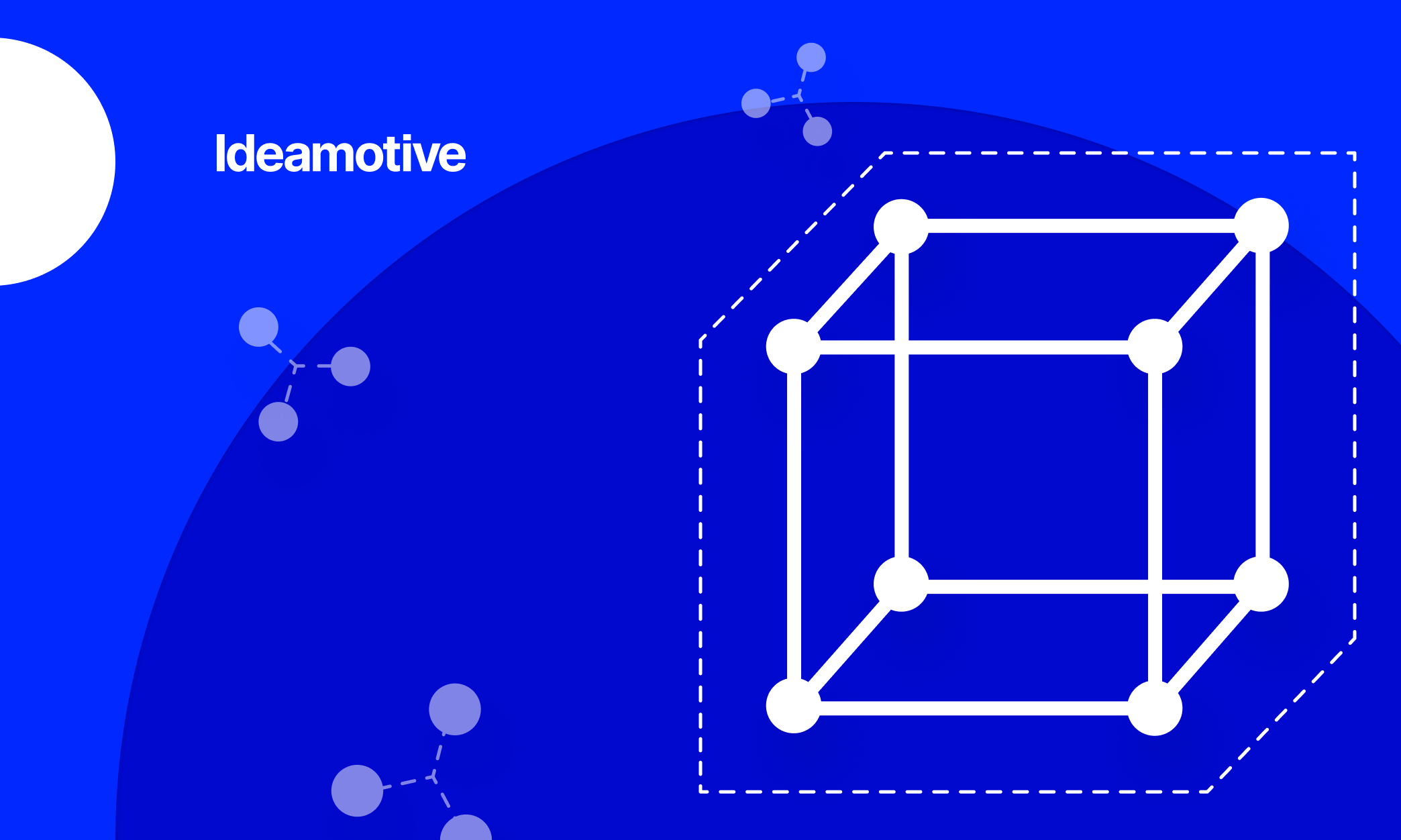The co-founder of 500Startups David McClure defined a ‘startup’ as a company that is confused about:
- What its product is
- Who its customers are
- How to make money
No matter how great the idea is, any startup needs to develop a powerful development strategy for its long-term success. As we know, different types of startups have different needs, objectives, and approaches, and the specific business models should ideally meet these criteria, as well as the industry it’ll operate in, and help companies to make a profit.
In other words, a business model is an effective outline of how a business plans to make money with its products or services and the customer base in a specific market. Overall, it is focused on the company’s products or services, their expected performance on the market, the possible marketing expenses, and how the company expects to turn a profit.
Unlike the revenue model, which explains the structure of how the revenue or income is generated, the business model makes a model-like, holistic description of the basic insights of how the company can generate value for its clients. Thus, it encompasses all the business aspects, including the revenue model and revenue streams, yet explains how they can effectively work together.
After all, Warren Buffet, the Berkshire Hathaway Chairman said:
Price is what you pay. Value is what you get.
Creating effective business models for startups is essential not only for building up a powerful long-term development strategy, but also to prove to your potential investors that the specific startup will work, reasonably assess the risks and provide them with all the essential information regarding the project. With a wide range of approaches introduced so far, in this article, we’ll provide a detailed analysis of the different business models for startups, introduce the famous companies that succeed with each of the strategies, and finally, explain what benefits you will get once you implement the right business model in your business project.
The Most Popular Business Models for Startups for 2023
At present, there are dozens of different business models for startups that are successfully used by small enterprises and large corporations. However, having more options does not necessarily help us make better choices. The selected development strategy can either result in great success or else end up with the project failure.
That is why it’s essential to learn more about each of the startup business models types: the major advantages and outstanding case studies to be able to select the business model that meets your needs.
Let’s now find out the top 10 most popular yet efficient business models that have already been implemented by such businesses as Amazon, Walmart, Uber, Airbnb, and many others!
Short description, how it works, why it works, pros & cons, real-life examples of each model
#1 Marketplace Model
The marketplace model is a popular model that enables your business to work as an intermediary for sellers and buyers, operate the transactions and deliver a variety of add-on services that might be useful for your clients. One of the most famous startups which succeed using the marketplace business model implemented is Amazon – the leading online retailer, that accounted for 41% of the entire e-commerce retail market in the US.
Advantages of the Marketplace model for startups include:
- More effective customer acquisition and easier enlarging of the customer base
- No need to store the inventory – all the products are shipped by sellers
- Doesn’t require any overhead costs, since the marketplaces will only take a small percentage of each transaction
However, what you should really pay attention to when choosing this business model is that you’ll need to find out the key reason why people should search for your marketplace specifically. The reputable business analysts warn that it’s no use creating a similar service to Amazon, as it’ll take years to gain competitiveness for your startup. Instead, you can focus on a smaller and more specific marketplace first, and reach out to the exact audience that’ll want to convert into your loyal clients.
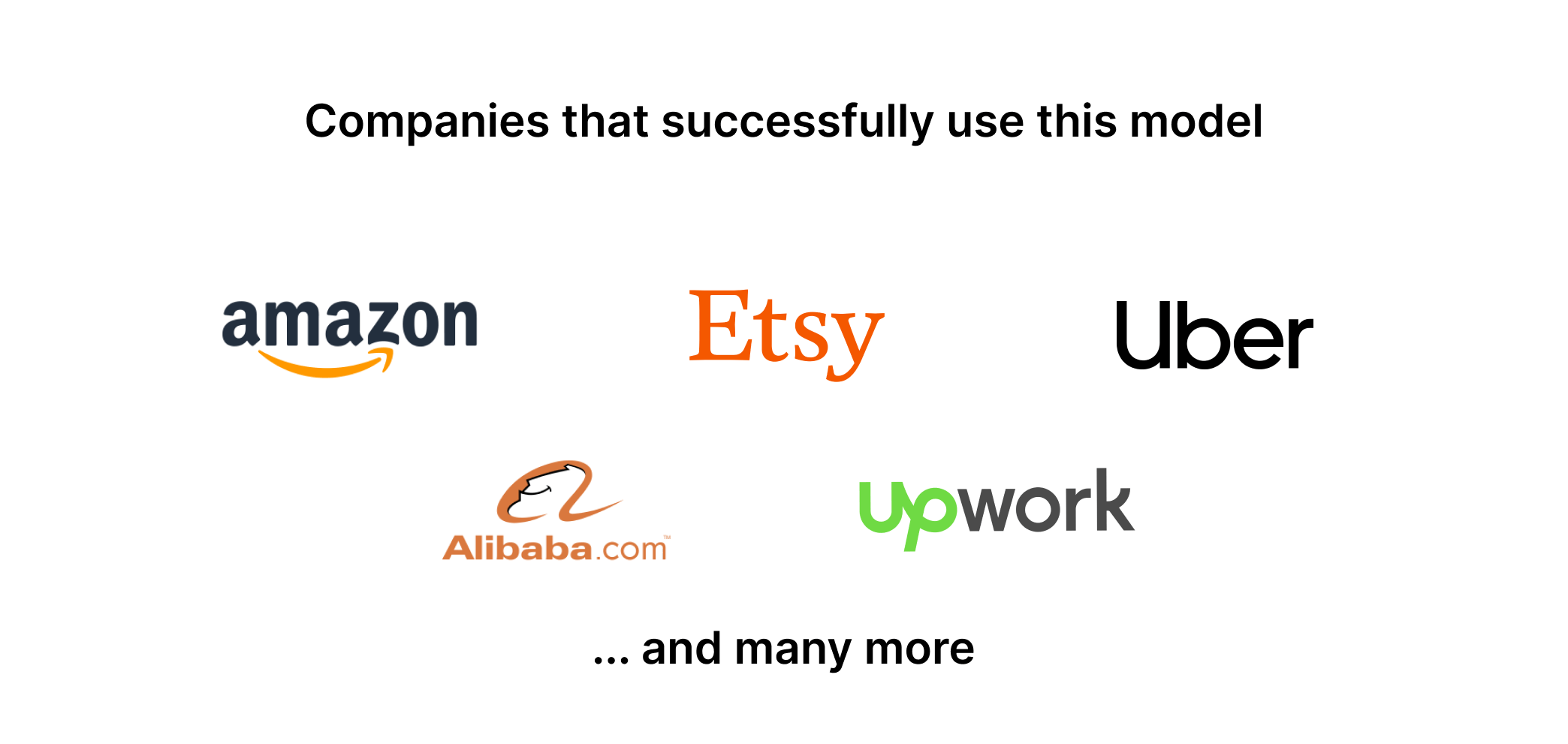
#2 On-Demand Model
The on-demand business model implies providing your customers with the specific services they can obtain anytime they need them. One of the most prominent examples of this model is a California-based Uber company, which generated $18.3 billion of revenue only in 2021 and so far has nearly 120 million users across the world.
Having analyzed the business models of successful companies, it becomes clear that this one works not for pickup services only: you can now order food, groceries, and other goods using your mobile app – that concept became extremely popular in 2020 and is now only in the first stages of evolving.
Advantages of the On-Demand model for startups include:
- The ability to provide different services within a single app (however, keep in mind that you’ll need to invest significant costs into the digital product development, hire top-notch UX/UI designers and app developers with prominent skills in working with Ruby on Rails and React frameworks)
- Is mostly focused on younger generations
- Allows using freelance labor
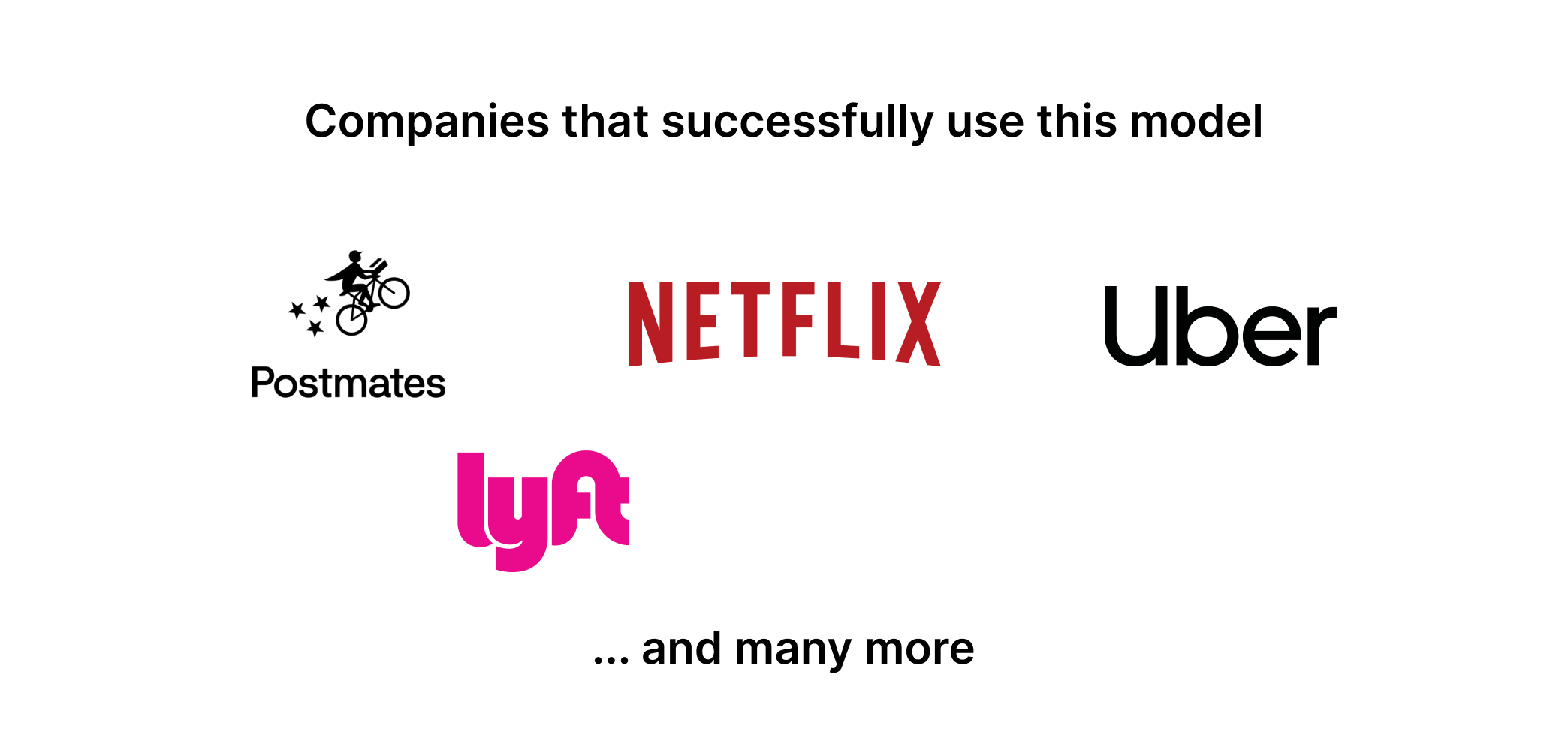
#3 Disintermediation Model
One of the most common yet successful business models that are actively used today is disintermediation – the strategy which is applied by hundreds of thousands of wholesalers, manufacturers, and businesses with direct sales processes. The most notable business model example you’ve surely been aware of is Apple, a giant mobile vendor with the world’s largest market share. For the last year, the company’s showing 29.49% of all the devices, according to GlobalStats data, which makes it one of the most outstanding examples of a successful business model performance, business strategists claimed.
Taken from: https://gs.statcounter.com/vendor-market-share/mobile
With this approach, the companies are able to reduce the intermediaries that impact the total product costs – an ideal solution for startups that are ready to produce and distribute their products. However, do consider hiring a well-qualified CTO for a startup to ensure your business model is producing first-class products that stand out from the competition from others within a certain field. For instance, if you’re planning to make a startup based on software product development, you’ll surely want to hire the best developers that use the latest development tools such as React Native or Ruby on Rails to design competitive apps for your business.
Advantages of the Disintermediation model for startups include:
- The lower product or service prices for the end-users
- Providing simpler, better access to the goods and services
- The ability to test various manufacturing scenarios to gain better competitive advantages for a business
- Increasing the profit margins for the company
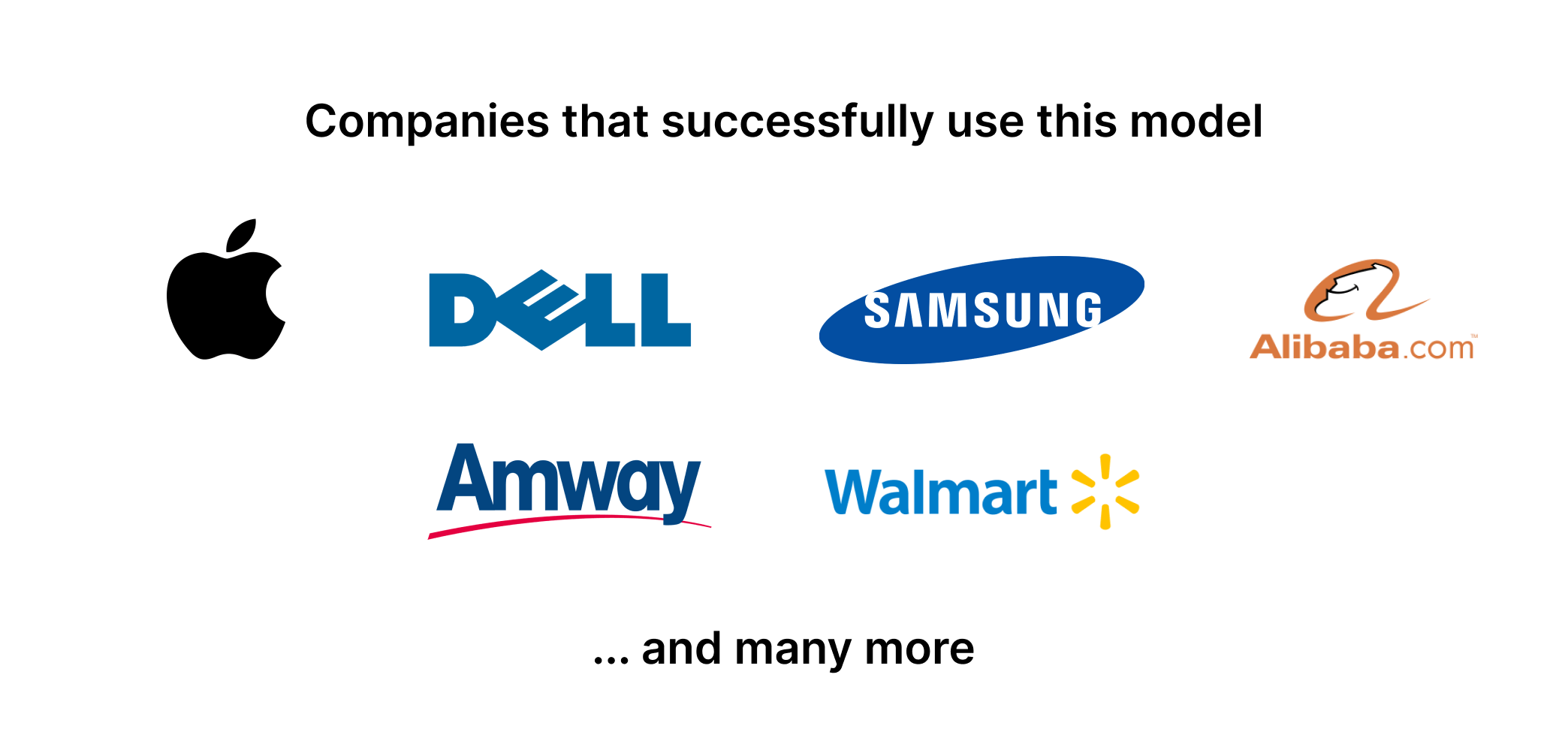
#4 Subscription Model
If we start listing the businesses that are using a subscription model, we’re more than sure you’ll realize that you have been already involved in it as a consumer at least once in your life. Netflix, Spotify, YouTube Premium, or Apple TV – all these are companies based on a subscription principle: they’re selling a service via a subscription (usually, monthly or yearly) as opposed to one-off products. The core feature that makes it stand out from other business models for startups is that it obtains stable cash flows that are recurrent.
Advantages of the Subscription model for startups include:
- Targeting the large customer pools that are searching for the convenient services
- Locking customers in for a long duration
- Steady, recurring revenue stream
- More opportunities for improving the quality of products and services (for example, you can hire the best specialists with the use of a nearshore software development strategy)
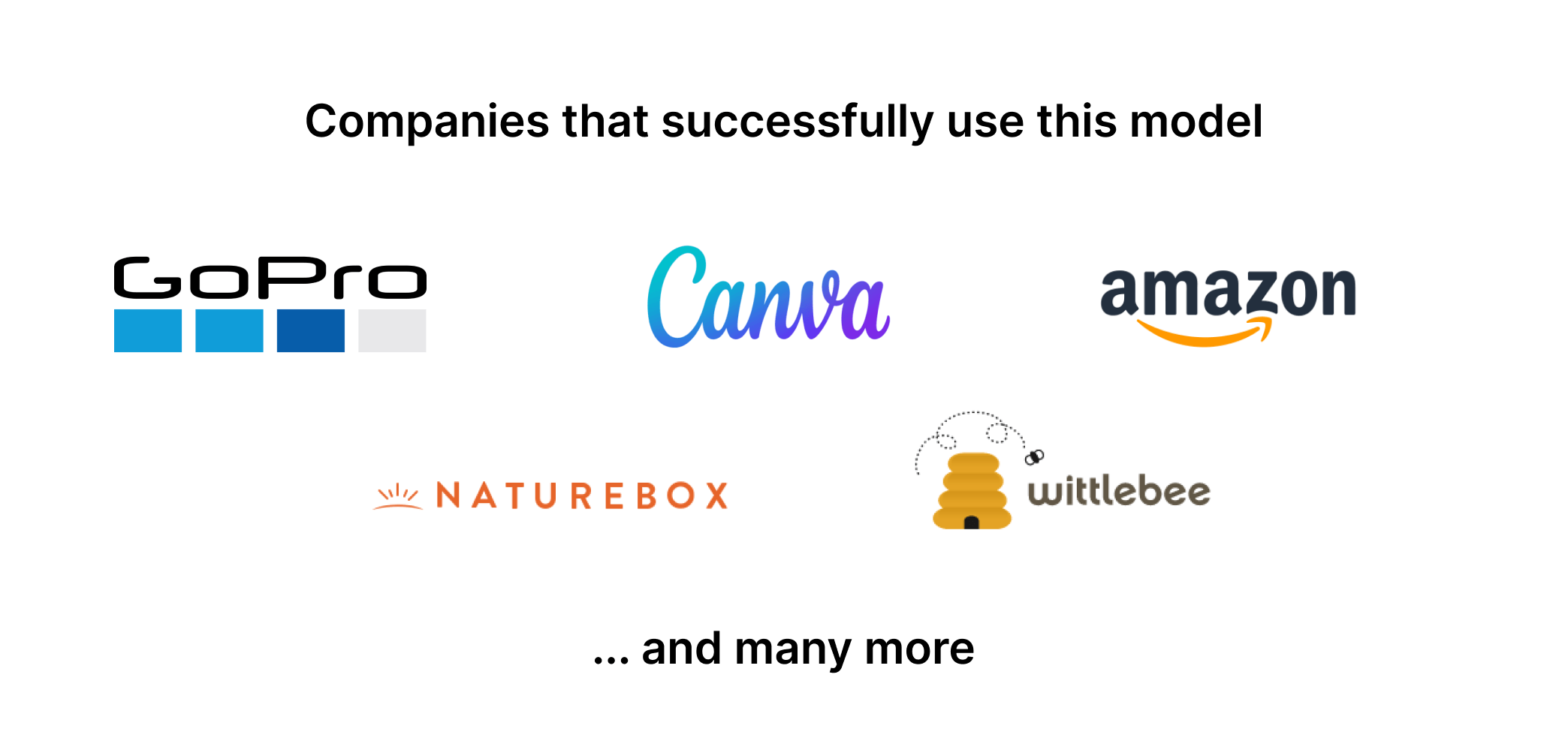
#5 Freemium Model
This approach is another great chance to succeed with a startup focused on service distribution, as it allows combining free and premium services within a single product. How does it work? Simply put, a business gives away specific services (for instance, music streaming) to a consumer for free to establish the foundation for future transactions. When the free list of services helps your business to reach large audiences, introduce the basic features of your services and why it’s better compared to others, the paid functions will open up complete access to the top-notch components and perks compared to a free service, offering much better user experience (as an example, offline music and ad-free listening to it).
It’s more than likely that you have at least some real-life examples in your mind, like Spotify – the free cross-platform music streaming service that features different subscription plans for nearly any type of persona, offering offline listening and lots of personalized music recommendations.
Advantages of the Freemium model for startups include:
- The ability to access a large audience and different types of persona buyers
- Balanced versions of free and premium plans
- A compelling list of features to attract customer’s attention and appealing functions to encourage them to an upgrade
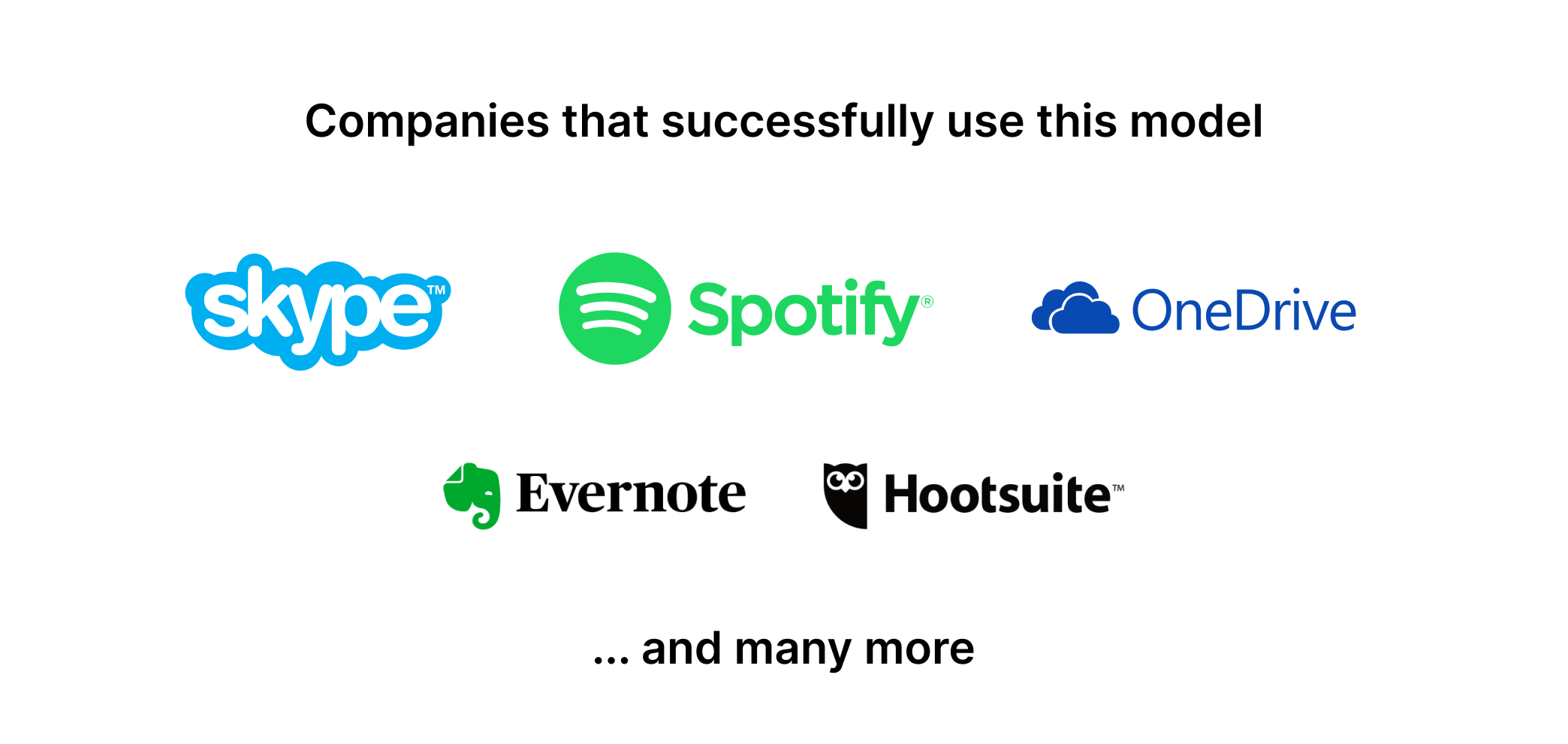
#6 Virtual Good Model
Originated over 15 years ago, this business model is now being reconsidered with a completely new meaning. Simply put, the virtual goods model is the approach that is commonly used for video game development and provides customers with the ability to purchase virtual goods that can only exist online (usually, within the app it’s purchased for). Today, this concept has a huge potential for being implemented in other businesses as well, such as for instance, NFT games and Metaverse development.
By the way, the last one has already announced the first cases of purchasing virtual real estate using the largest third-party marketplaces like OpenSea and Non-Fungible.com. Due to the fact that this field has only started to develop, it’s never been a better chance to successfully launch a startup that goes viral.
Advantages of the Virtual Good model for startups include:
- Offering a first-class gaming experience with the in-app purchase options
- Enhancing the user experience and engagement
- Virtual goods are unique, context-bound items that feature individual ownership, which adds to their exclusivity
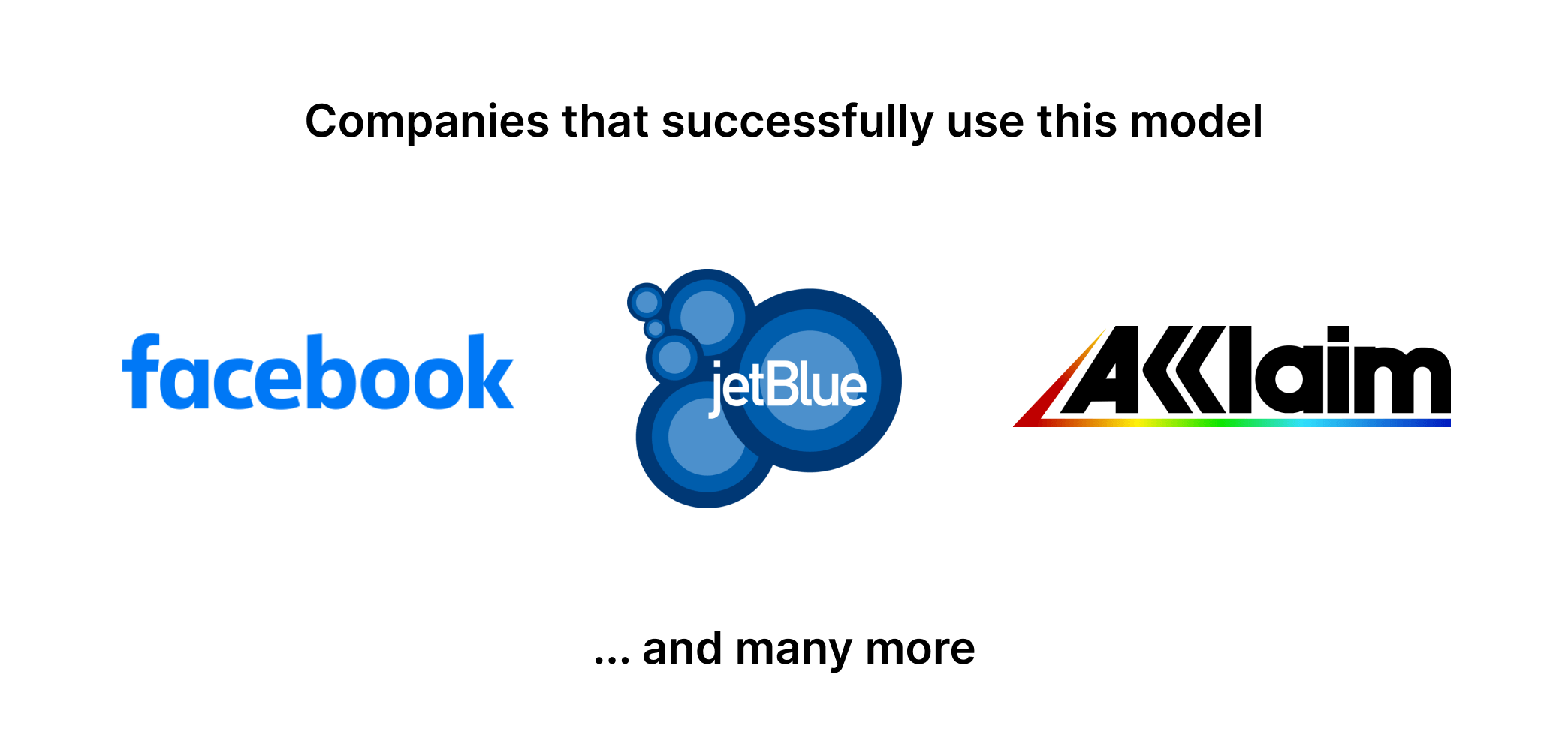
#7 Reseller (Magic) Model
Similar to a marketplace model, this approach enables startups to promote and sell the products which are produced and manufactured by another company or individual. If compared to the marketplace, the reseller model delegates all the marketing efforts to the startup, encouraging them to be more proactive in the market. This model commonly implies delivering the product by the company (or individual) that has listed the item for sale, which helps resellers to avoid the common inventory problems, and delivery chores as well. Finally, the “magic” model allows you to reduce the HR and labor expenses, which is another important advantage for startups with a limited budget.
Advantages of the Reseller model for startups include:
- No inventory issues reduced costs for HR
- Product delivery is usually delivered by the enterprise that listed item for sale
- The proven method of obtaining a profit
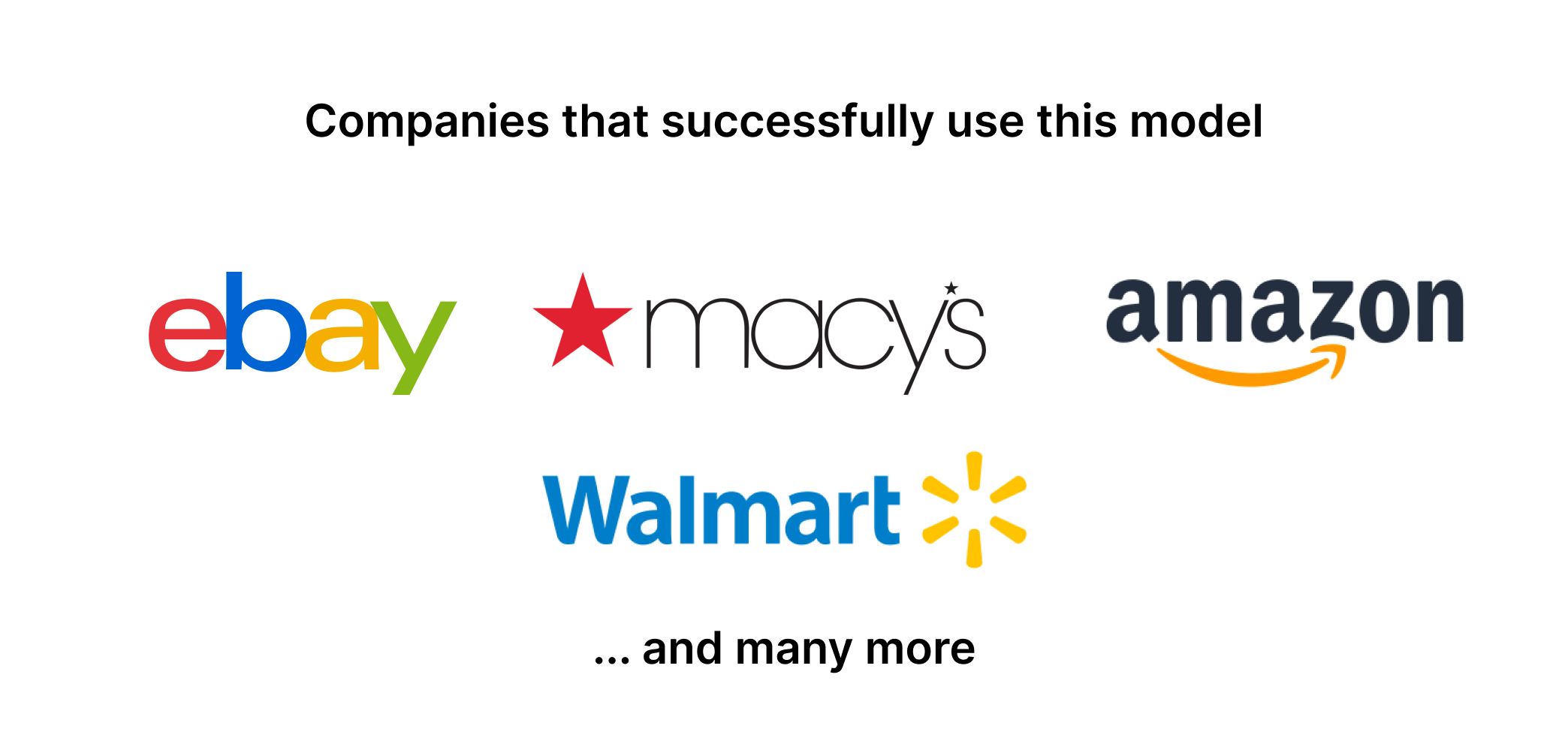
#8 Hook & Bait Model
Also known as “razor and blade”, “product and service” or the “tied products” model utilizes the approach, in which selling the basic products at a cheap price to make a profit by selling the complementary products or refills for a higher price or else increasing the sales of the profitable complementary products. This business approach is often associated with Gillette – the inventor of disposable razors, the company inspired competitors to develop the bait and hook idea based on this concept.
Advantages of the Hook & Bait model for startups include:
- Suitable for customers, profitable for companies: you can’t use one of the supplies only – the “blade” must be locked to the “razor” similar to the coffee capsules, that can’t be used without the coffee machine
- Enhanced client loyalty – you’ll either need to create a loyal community or prevent other companies from entering your market field
- Better adaptability to the market and target audience needs
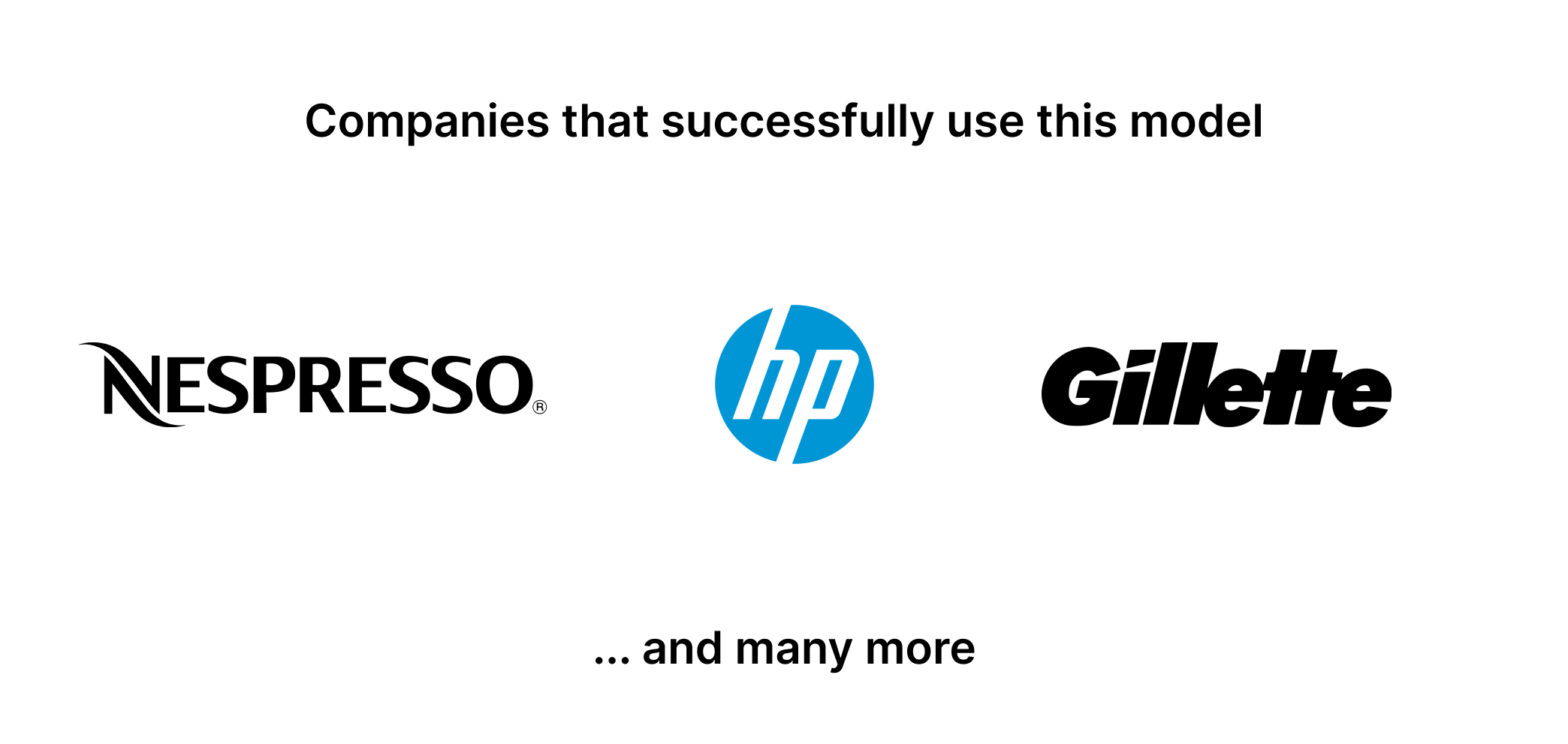
#9 Reverse Auction Model
Among the other business marketing strategies for startups used nowadays, you can also try a reverse auction approach – the strategy used in sourcing between buyers and suppliers, where they compete with one another to win the business of the buyer and sell one or more products/services he markets. After that, the buyer learns the bids and selects one or more suppliers for his business.
Advantages of the Reverse Auction model for startups include:
- Significant time savings and better ability to meet the deadlines
- Lower purchase costs through increased competition
- Enhanced compliance and data security provided by reverse auction providers
Companies that successfully use this model: Construction companies, real estate companies, and some public sector companies (in case they’re in search of a contract).
#10 Modernized Direct Sales Model
The direct sales business model implies a business’ own employees demonstrate and sell their products or services directly to the end consumer. This model is opposite to the retail marketing approach, where a business sells products in large volumes to distributors and stores instead of the end buyers. The direct sales approach allows for cutting some middlemen and provides much higher margins from a more direct, more personal interaction with consumers.
Advantages of the Modernized Direct Sales model for startups include:
- Closer connection with a customer through a shorter distribution chain
- More effective marketing strategies and enhanced marketing messages
- Advanced control of the prices and better distribution supervision
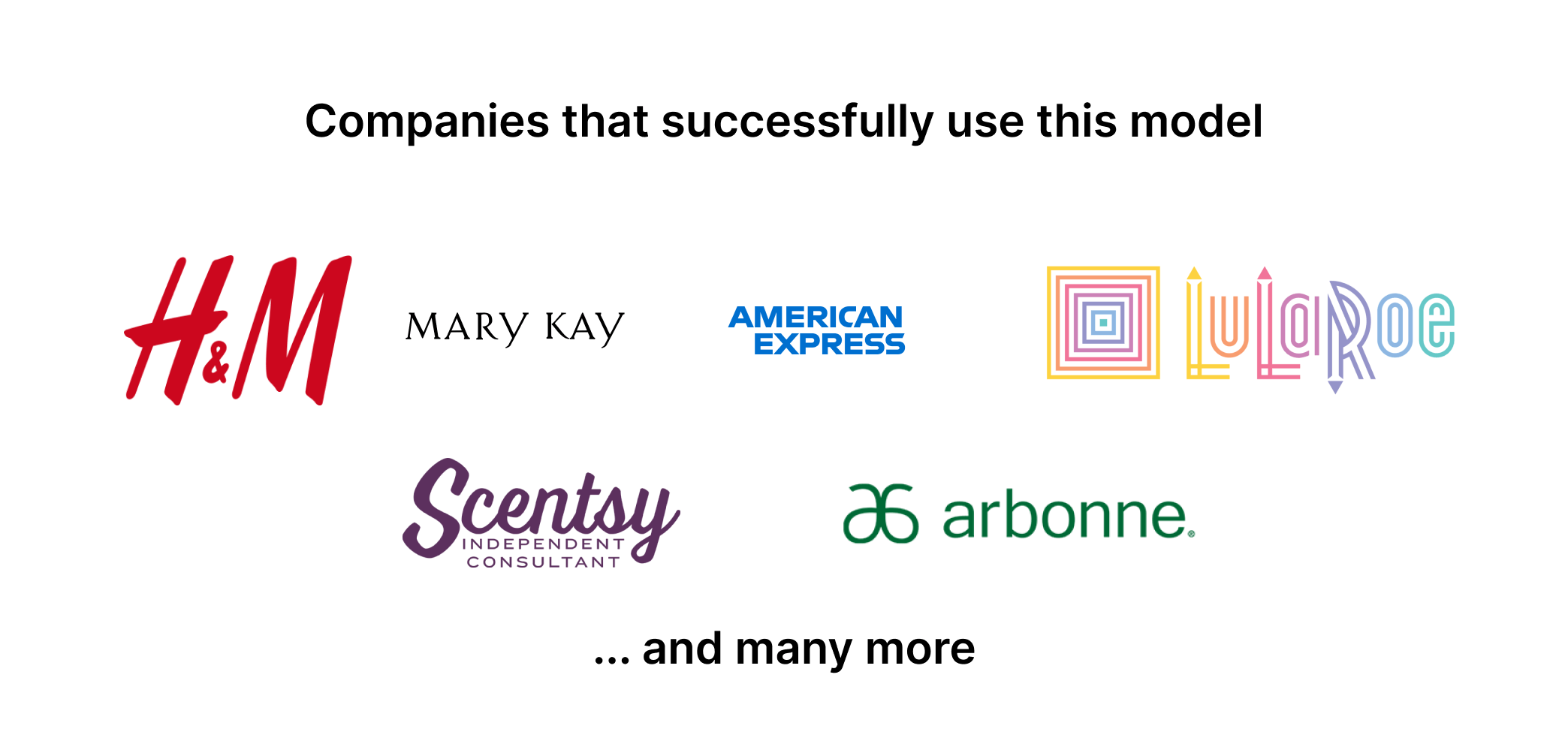
Conclusion
These are the most effective business models you can easily use for nearly any startup regardless of its field. Now that you have all the essential insights about the best strategies to use for your company’s development, we hope that there are some really good options that can ideally fit your company’s needs and objectives.
However, if you still need any help or want to get a second opinion before making your final choice – feel free to contact our team! Our best funding consultants and qualified startup experts are 24/7 here to help you make the best decisions that empower your business from day one!
